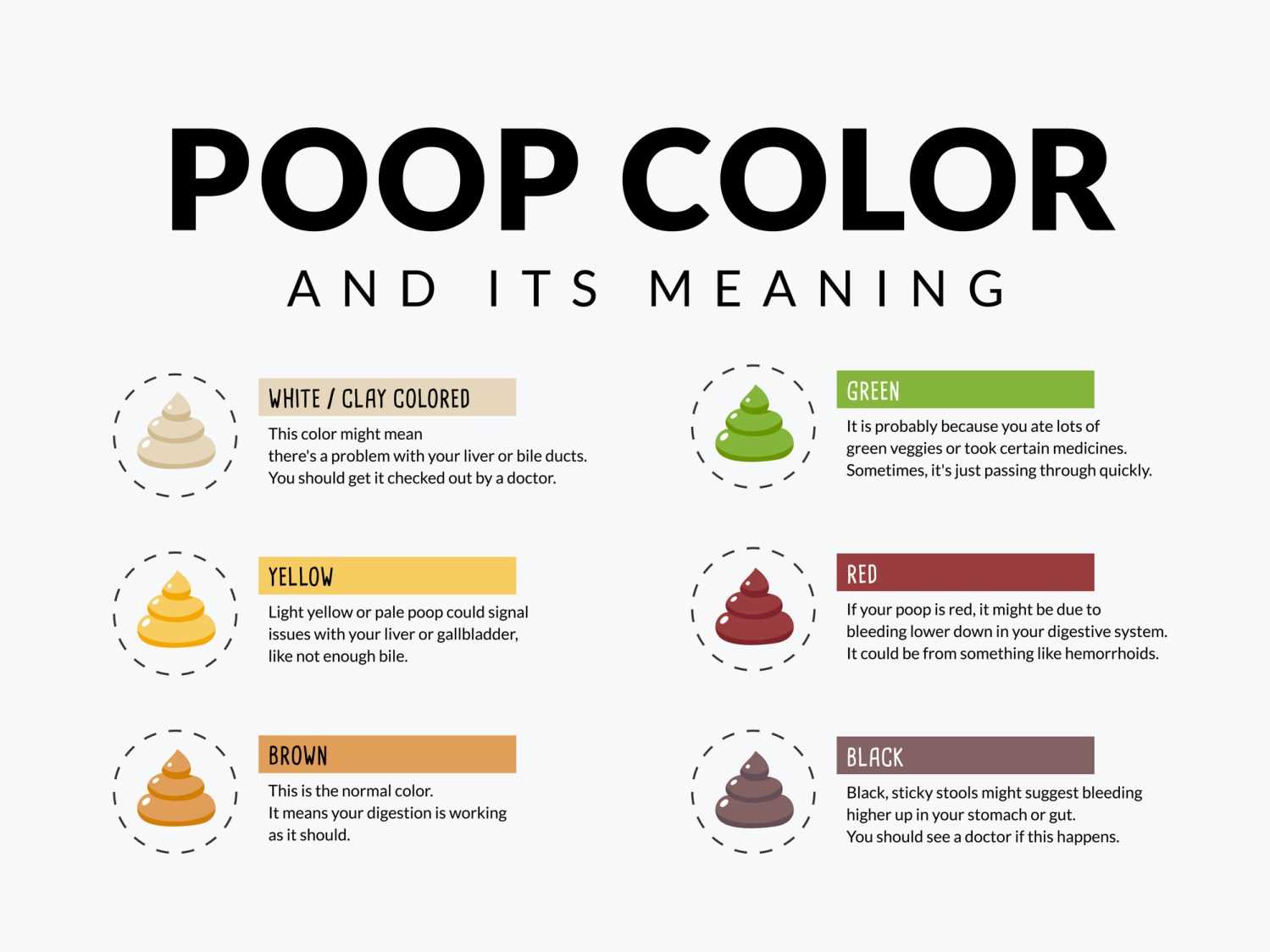



Consuming deeply pigmented beverages can indeed lead to unusual changes in stool coloration. The compounds in these drinks, particularly tannins and anthocyanins, interact with digestive processes, sometimes resulting in a darker appearance. If you notice a significant shift in the hue of your bowel movements after indulging in such drinks, it’s wise to consider the contents of your diet.
While this phenomenon is typically harmless, it’s important to differentiate between natural changes due to dietary choices and potential health concerns. Dark stools can sometimes indicate the presence of blood, which warrants immediate medical attention. However, if the alteration corresponds with your intake of certain beverages, it is likely a benign result of your recent consumption habits.
For those who enjoy these rich beverages, moderation is key. Pay attention to how your body reacts, as individual responses can vary widely. If you frequently notice these changes, consider consulting a healthcare professional for personalized advice tailored to your dietary and health needs.
Red Beverage and Its Impact on Stool Color
Yes, consuming this particular alcoholic drink can lead to darkened fecal matter. The pigments found in this beverage, specifically anthocyanins, can influence the coloration of waste. These compounds are responsible for the rich hues, and when metabolized, they may alter the appearance of stool.
Additionally, the presence of tannins can contribute to changes in digestive processes, potentially resulting in darker excretions. It’s essential to remain aware of the overall diet, as other foods and beverages may also play a role in stool color changes.
If you notice persistent darkening beyond occasional consumption, consult a healthcare professional to rule out other underlying issues. Monitoring your intake and noting any significant shifts in your body’s reactions can provide valuable insights into your health.
Understanding the Effects of Red Wine on Digestion
Consumption of fermented grape beverages can influence digestive processes in various ways. The presence of compounds such as tannins and sulfites impacts gut flora, potentially leading to changes in bowel movements and overall gut health.
Key Components and Their Impact
Tannins, found in the skins and seeds of grapes, can have astringent properties. This astringency might affect the digestive tract, causing some individuals to experience constipation or changes in stool consistency. Additionally, sulfites, which are often added as preservatives, can trigger sensitivities in a small percentage of the population, leading to gastrointestinal discomfort.
| Component | Effect on Digestion |
|---|---|
| Tannins | May cause astringency, potentially affecting bowel movements. |
| Sulfites | Can cause digestive issues in sensitive individuals. |
| Alcohol | May irritate the gastrointestinal lining, leading to discomfort. |
Recommendations for Enjoying Wine
To mitigate any adverse effects, consider moderating intake and pairing these beverages with food. Consuming a balanced meal can help buffer the impact on digestion. Hydration is also essential; drinking water between sips can assist in maintaining digestive comfort.
What Causes Black Stool After Drinking Red Wine?
Consumption of deep-colored beverages can lead to darkened feces due to several factors. The pigments found in such drinks, particularly anthocyanins, can contribute to this effect. These compounds, responsible for the rich hues of certain beverages, may not fully break down during digestion, resulting in darker stool.
Another potential cause lies in the presence of tannins, which are naturally occurring compounds in various beverages. Tannins can interact with digestive enzymes and alter the color of stool. Additionally, certain individuals may experience temporary gastrointestinal changes after indulging in these drinks, leading to varying stool colors.
It’s essential to monitor overall digestive health. If unusual discoloration persists or is accompanied by other symptoms, consulting a healthcare professional is advisable. This ensures no underlying conditions are contributing to the change in stool color.
Hydration plays a key role in digestion. Drinking plenty of water can help mitigate any staining effects from various foods and beverages. Maintaining a balanced diet also supports digestive health, potentially reducing the occurrence of unexpected changes in stool color.
Identifying Dietary Factors That Contribute to Stool Color Changes
To pinpoint the culprits behind changes in stool hue, it’s crucial to examine various dietary components. Several items can significantly influence coloration.
Common Food Items Affecting Stool Color

- Beets: Often lead to reddish stool due to their natural pigments.
- Spinach: High in iron, which may result in darker stool shades.
- Black Licorice: Consuming this can cause a very dark appearance.
- Iron Supplements: These can darken stools, mimicking the effects of specific beverages.
Other Factors to Consider
- Medications: Some prescriptions and over-the-counter drugs may alter stool color.
- Digestive Health: Conditions like gastrointestinal bleeding can produce black stools, which should prompt immediate medical attention.
- Hydration Levels: Insufficient water intake can affect digestion and stool consistency.
When assessing changes in stool, consider all dietary elements, not just one source. For example, when using a best shower scrubber brush, ensure that your diet aligns with your health goals to maintain overall well-being.
When Should You Be Concerned About Dark Stool?
Seek medical advice if you notice persistent dark stool that lasts more than a couple of days, especially if accompanied by symptoms like abdominal pain, dizziness, or fatigue. These could indicate internal bleeding, which requires immediate evaluation.
Monitor any other changes in your digestive health. If dark stools coincide with nausea, vomiting, or changes in appetite, consult a healthcare professional. It’s crucial to differentiate between harmless dietary causes and serious health issues.
Be aware of the timing of dark stool appearance. If it occurs shortly after consuming certain foods or beverages, it might be harmless. However, if there’s no clear link to recent meals and the color persists, a medical examination is warranted.
Keep track of any medications you’re taking, as certain drugs can contribute to stool color changes. If you suspect a medication is the cause and you experience other concerning symptoms, reach out to your doctor.
Regular check-ups can help identify underlying health issues early. Don’t hesitate to discuss any concerns about stool color with your healthcare provider during routine visits.
Comparing Red Wine to Other Foods and Beverages
Stool coloration can be influenced by various dietary choices. Foods rich in iron, such as spinach and red meats, often lead to darker output. Similarly, dark berries and certain artificial colorings can also cause shifts in hue. In contrast, lighter beverages like clear sodas or white wines typically do not alter stool appearance significantly.
Dark-colored fruits, such as blackberries and blueberries, may mimic the effects of certain fermented grape beverages due to their pigments. When consumed in large quantities, they can contribute to darker tones, similar to those experienced after consuming a certain type of drink.
High-tannin foods, including legumes and some nuts, can also play a role. Tannins can interact with other compounds in the digestive system, potentially influencing stool color. This interaction is not exclusive to any single food or drink but can occur across a range of dietary options.
For those who enjoy spicy foods, particularly those containing chili peppers, the digestion process can alter stool consistency and color as well. The presence of capsaicin can lead to changes that, while not directly linked to darkening, can create a noticeable effect.
Lastly, certain medications and supplements, particularly those containing iron or bismuth, can lead to darker stools. It is essential to consider all dietary components when evaluating changes in stool appearance, as many factors can contribute to these variations.
Tips for Monitoring Your Digestive Health After Alcohol Consumption
Track your body’s response post-consumption. Keeping a journal helps identify patterns related to digestion and stool color.
Stay Hydrated
- Drink plenty of water before, during, and after consuming alcoholic beverages.
- Aim for at least eight glasses daily to support digestion and minimize dehydration effects.
Adjust Your Diet
- Include fiber-rich foods like fruits, vegetables, and whole grains to aid digestion.
- Avoid heavy, greasy meals before drinking to reduce gastrointestinal stress.
Consider probiotics to enhance gut health. Incorporating yogurt or fermented foods can support a balanced microbiome.
Pay attention to symptoms. If experiencing discomfort, bloating, or unusual stool coloration, consult a healthcare professional for further evaluation.
Limit intake of high-tannin beverages. These can impact gut health differently and may contribute to changes in stool appearance.
Monitor emotional well-being. Stress and anxiety can affect digestion, so consider relaxation techniques alongside responsible drinking.
Lastly, schedule regular check-ups with a healthcare provider to maintain overall digestive health and address any concerns promptly.
FAQ:
Can drinking red wine really cause my stool to turn black?
Yes, consuming red wine can lead to black stool in some individuals. This phenomenon is primarily due to the presence of certain compounds in red wine, such as tannins and pigments, which can affect digestion and stool color. However, if the stool remains black or is accompanied by other symptoms, it is advisable to consult a healthcare professional to rule out any serious underlying conditions.
What are the other causes of black stool apart from red wine?
Black stool can result from various factors beyond red wine consumption. Common causes include the ingestion of iron supplements, certain medications, and foods like black licorice or blueberries. Additionally, gastrointestinal bleeding, particularly from the upper digestive tract, can lead to black stool due to the digestion of blood. If you notice a sudden change in stool color, especially if it’s persistent, it’s important to seek medical advice.
How do tannins in red wine affect digestion?
Tannins are polyphenolic compounds found in red wine that can influence digestion. They may affect the gastrointestinal tract’s function by binding to proteins and other molecules, which can alter the digestion process. While this can lead to temporary changes in stool color, it’s not typically harmful. If you experience discomfort or persistent changes in bowel habits after consuming red wine, it may be worth consulting a healthcare provider.
Is black stool always a sign of a health problem?
Not necessarily. While black stool can indicate potential health issues, such as gastrointestinal bleeding, it can also result from harmless dietary choices or medications. If the change in stool color is temporary and correlates with recent dietary habits (like drinking red wine), it may not be a cause for concern. However, if you experience other symptoms such as pain, nausea, or prolonged changes in stool color, seeking medical advice is recommended.
How quickly can red wine affect stool color?
The effect of red wine on stool color can vary from person to person. Some individuals may notice a change within a few hours after consumption, while others may not see any difference at all. Factors such as the amount of wine consumed, individual digestion rates, and overall diet can influence how quickly the stool color changes. If you are concerned about changes in your stool, it’s advisable to monitor other symptoms and consult a healthcare professional if needed.










